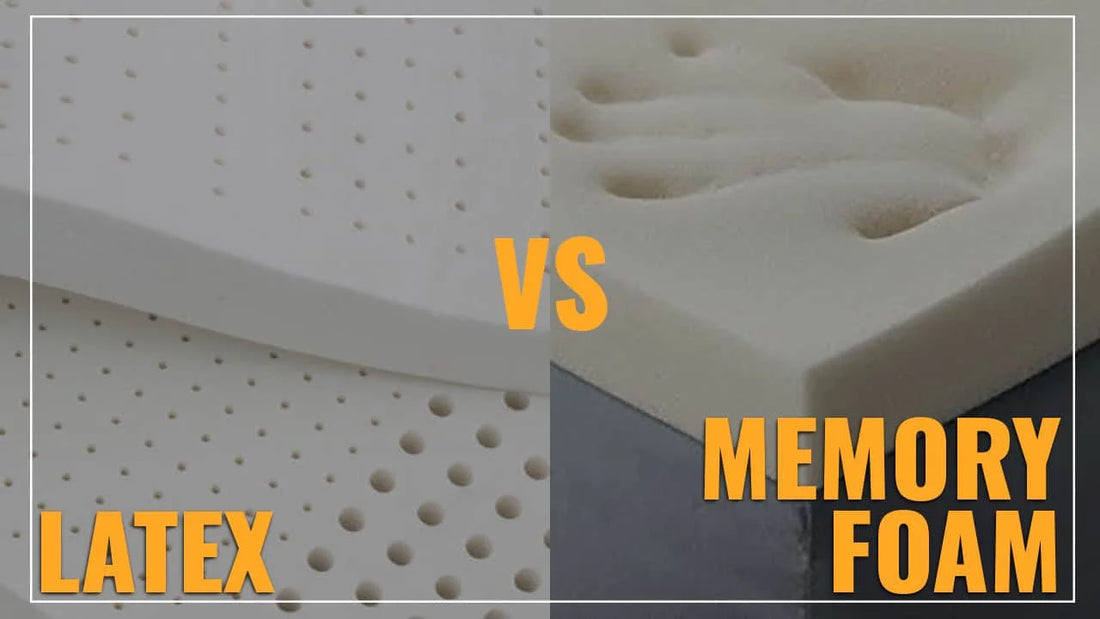
Memory Foam vs. Latex: Choosing the Right Material for Your Mattress
Share
Choosing between memory foam and latex mattresses involves considering various factors such as comfort, support, durability, and personal preferences. Here's a comparison to help you decide which material might be the right fit for your mattress:
Memory Foam Mattresses:
-
Comfort:
- Memory foam contours to the shape of your body, providing excellent support and pressure relief.
- It's known for its ability to alleviate joint and back pain.
-
Motion Isolation:
- Memory foam is exceptional at absorbing and isolating motion. This makes it an excellent choice for couples, as movements on one side of the bed are less likely to disturb the other.
-
Heat Retention:
- Traditional memory foam has a reputation for retaining heat. However, many modern memory foam mattresses incorporate cooling technologies to address this issue.
-
Durability:
- The lifespan of a memory foam mattress can vary, but it generally lasts around 7-10 years. High-density foams tend to be more durable.
-
Allergies:
- Memory foam is naturally resistant to dust mites and other allergens, making it a good option for allergy sufferers.
Latex Mattresses:
-
Comfort:
- Latex provides a responsive and buoyant feel. It contours to the body but doesn't give the sinking feeling associated with memory foam.
-
Motion Isolation:
- While latex does isolate motion to some extent, it may not be as effective as memory foam in this regard.
-
Heat Retention:
- Latex is generally cooler than traditional memory foam, as it has a more breathable structure. This can be beneficial for hot sleepers.
-
Durability:
- Latex mattresses are known for their longevity. High-quality latex mattresses can last 10-15 years or more.
-
Allergies:
- Natural latex is hypoallergenic and resistant to dust mites and mold. However, some individuals may be allergic to latex. In such cases, synthetic or blended latex may be a better option.
Other Considerations:
-
Price: Memory foam mattresses often come in a wider range of price points, making them more budget-friendly. Latex mattresses, especially those made with natural latex, tend to be more expensive.
-
Environmentally Friendly: If environmental impact is a concern, natural latex is a more sustainable option as it comes from the sap of rubber trees.
-
Preferences: Personal comfort preferences play a significant role. Some people love the conforming feel of memory foam, while others prefer the responsive bounce of latex.
Ultimately, the best choice depends on your individual preferences, budget, and any specific considerations like allergies or environmental concerns. It's also advisable to try out mattresses in person whenever possible or look for brands with flexible return policies to ensure satisfaction with your choice.
